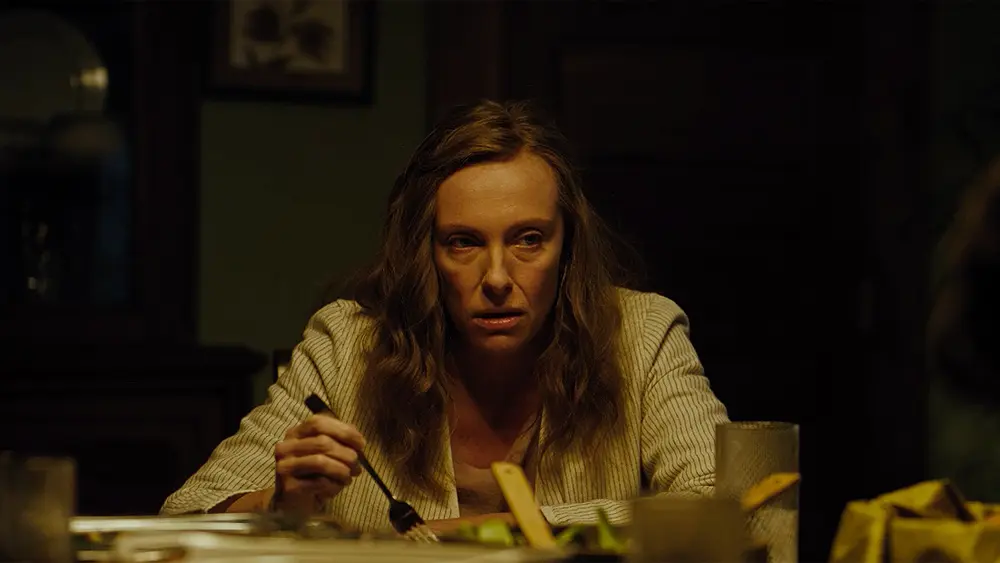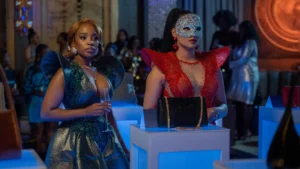What do you think of when you consider a “mother figure”? Someone warm, someone authoritative, someone tough? Do you picture your own mother, or what you wish they’d been like? Do you picture yourself?
There are as many types of parental relationships as there are children to have relationships with, so it’s no surprise that there is a huge variety of mother figures in film. I’ve picked out some which I consider to be particularly memorable, for one reason or another: a few of the films are about the mothers in question and their relationships; but for the most part, their motherhood is peripheral to the story itself. Even small roles can have a great impact on a story, though… so I’m afraid I have to warn you, here lie spoilers…
The Manchurian Candidate
Written by George Axelrod (based on the novel by Richard Condon), and directed by John Frankenheimer (USA, 1962)
It’s a terrible thing to hate your mother. But I didn’t always hate her. When I was a child, I only kind of disliked her.
When I first pitched a Mother’s Day article, Mrs. Eleanor Shaw Iselin, played spectacularly by Angela Lansbury, was the first mother I thought of. And she is sublime: she is intelligent, she has the poise and manners of an ideal politicians wife, and above all, she is loyal. Her loyalty is complex though, and tested almost to its limits during the course of the film: Mrs. Iselin is someone who will commit anything to her political ideals; but when both her commitment and her son are taken advantage of, she vows absolute vengeance.
The Manchurian Candidate was nominated for two Academy Awards: Best Supporting Actress (Lansbury) and Best Editing. Lansbury’s Mrs. Iselin may have been too twisted for anyone to want to be her, but she was truly memorable.
Bambi

Based on the story by Felix Salten, and directed by David Hand (USA, 1942)
Faster! Faster, Bambi! Don’t look back! Keep running! Keep running!
Well here is a funny thing: I watched Bambi when I was small, and read the book when I was a bit less small, but I barely remember the story at all. Yet I remember the pain I felt over the death – nay, killing – of Bambi’s mother (voiced by Paula Winslowe). When I told my son that my current writing project was about “memorable mothers” from films, the first thing he said was “you’re not going to include sad ones are you, like Bambi?”. I said, “if it’s had that big an impact, then yes, I definitely will.”
The story of Bambi is about a young deer’s life, which naturally has a turning point when his mother is shot by a hunter, and he is obliged to become suddenly independent. The death scene is often cited as one of the saddest movie moments of all time: it has such an impact on viewers that we hardly remember Bambi himself. Not because of her character but her passing, Bambi’s mother is a truly memorable one.
Alien
Written by Dan O’Bannon and Ronald Shusett, and directed by Ridley Scott (UK/USA, 1979)
Mother’s interrupted the course of our journey. She’s programmed to do that should certain conditions arise. They have. It seems that she has… intercepted a transmission of unknown origin. She got us up to check it out.
The Nostromo space ship’s omniscient computer, the MU-TH-UR 6000 aka Mother (voiced by Helen Horton), is considered by many as an AI, but does not have an intelligent personality to the same degree as, say, HAL from 2001. We remember Mother because of her involvement with the essential conspiracy behind Alien; but this involvement was programmed, not something she/it decided for itself.
But as well as that, we remember Mother as the one everyone relies on, turns to for reassuring explanations, escalates to and looks up to to provide some unity. Mother isn’t a leader, but rather provides back-up to the leader, and follows the most logical course of action with the information available. This is a mother without the added complication of emotions.
Psycho
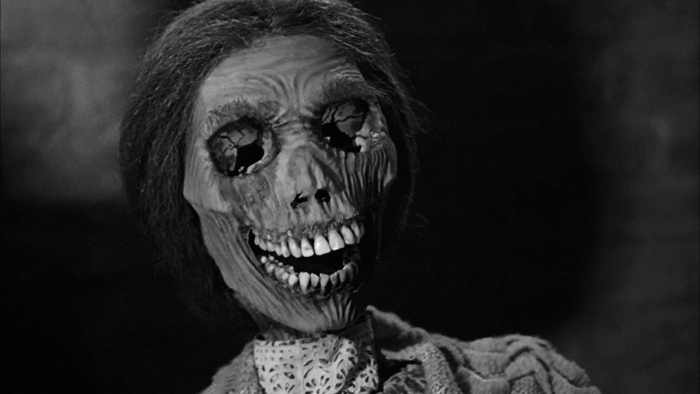
Written by Joseph Stefano, based on the novel by Robert Bloch, and directed by Alfred Hitchcock (USA, 1960)
It’s not like my mother is a maniac or a raving thing. She just goes a little mad sometimes. We all go a little mad sometimes. Haven’t you?
Norma Bates (voiced by Virginia Gregg) isn’t so much a character in Psycho as a black cloud in the background throughout the story; especially in terms of the influence she has held – and still does hold – over her son, Norman. Mrs. Bates is a mother with strict standards, who Norman has found it very difficult to keep to; and he has tried to all his life, so that he is unable to untangle himself from her discipline, even long after she is dead… watch this film for the consequences.
So although Psycho is not about Norman’s mother as such, it certainly is about the impact of their relationship. If you have seen the film, or read the book, you will no doubt remember Norma as much as Norman… and the final image from the film is the one most likely to stay with you.
Hereditary
Written and directed by Ari Aster (USA, 2018)
Don’t you EVER raise your voice at me! I am your mother! You understand? All I do is worry and slave and defend you, and all I get back is that fucking face on your face!
Annie, played by Toni Collette (who also played a well-drawn mother character in both Krampus and Little Miss Sunshine), is the central character in Hereditary; although the focus does move to each of her offspring at times. Annie is resilient, above all; especially following the traumas in her life, both before and during the events of the film. At the “Losing a loved one” group she attends, it is clear she wants a natural way to respond to the loss of her mother, but has lost sight of what a natural response would truly be, and so she simply talks it out, in the hope of catharsis. At home, there is not enough talking, though, which is why the infamous dinner table scene brings such an explosive release.
Annie’s mother before her is a constant shadow: not only is the family in mourning when the film starts but apparently she had determined a good deal of the way Annie raised her children, who are pivotal in Hereditary. Annie herself adores both her children and does everything she can for them, but it is very difficult for her to escape her own mother’s influence: you’ll find out why if you see the film.
Oh, and in case you hadn’t heard: Colette’s performance is stellar.
Donnie Darko
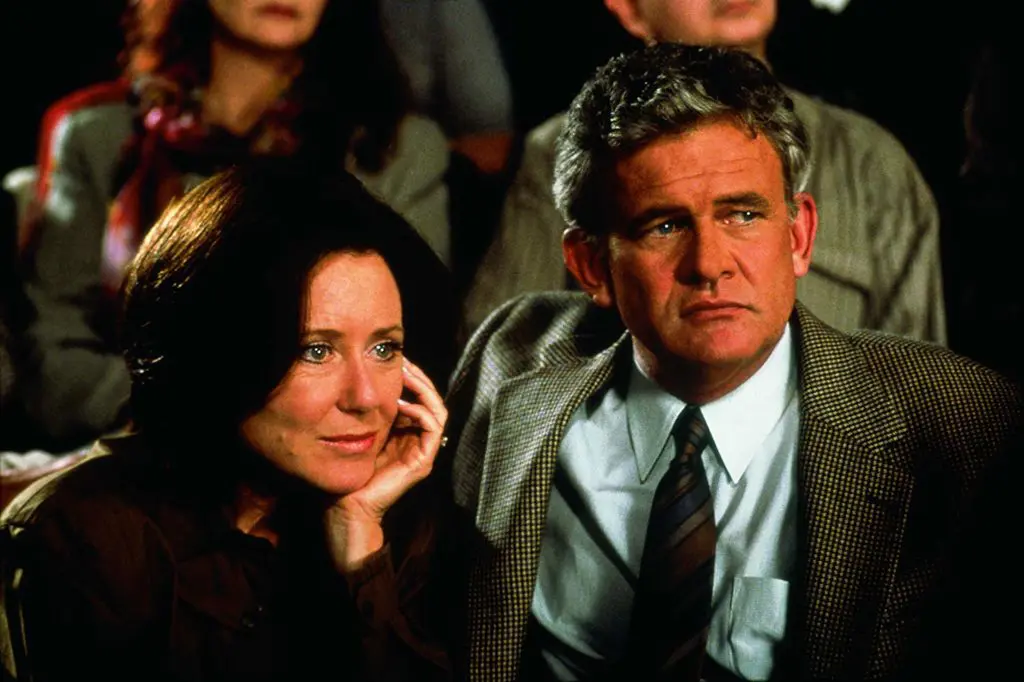
Written and directed by Richard Kelly (USA, 2001)
We will not have this at the dinner table.
Out of all the mothers in cinema, there aren’t many I would actually look up to, but Rose Darko (played by Mary McDonnell) is certainly one I would. As a woman, Rose is intelligent, assertive and graceful. As a parent, she is liberal, stands up for her children, supports them in being themselves, and also has authority in her home at the same time (at least some). She thinks about her family’s needs and is a clear partner with her spouse (Holmes Osborne).
I am a Donnie Darko fan and have been since I saw it at the cinema on its release. When I rewatched it at home years later, it was like a time-travel experience in its own right: watching the start of the film, and meeting Rose and Eddie before the key events take place, I can feel the pain that they – especially she – will experience at the end. We get to know Donnie so well, and Rose too (though to a smaller extent) that their mother-son relationship is real; this is why she was so memorable to me. I admire Rose Darko, but because of the way the film ends, I could never want to be her.
Here follows a couple who are not really mothers… but they would be very happy to be seen as mother figures, and no-one can argue they’re not memorable…
Bill & Ted’s Excellent Adventure
Written by Chris Matheson and Ed Solomon, and directed by Stephen Herek (USA, 1989)
Whoa, who’s the senorita? She’s cute.
I became a stepmother in 2005, and if I could have chosen any step mum to emulate, it would be Missy-I-mean-Mom (Amy Stoch). But this isn’t me, not by a long way. Sorry, hubby!
Enough said.
Coraline
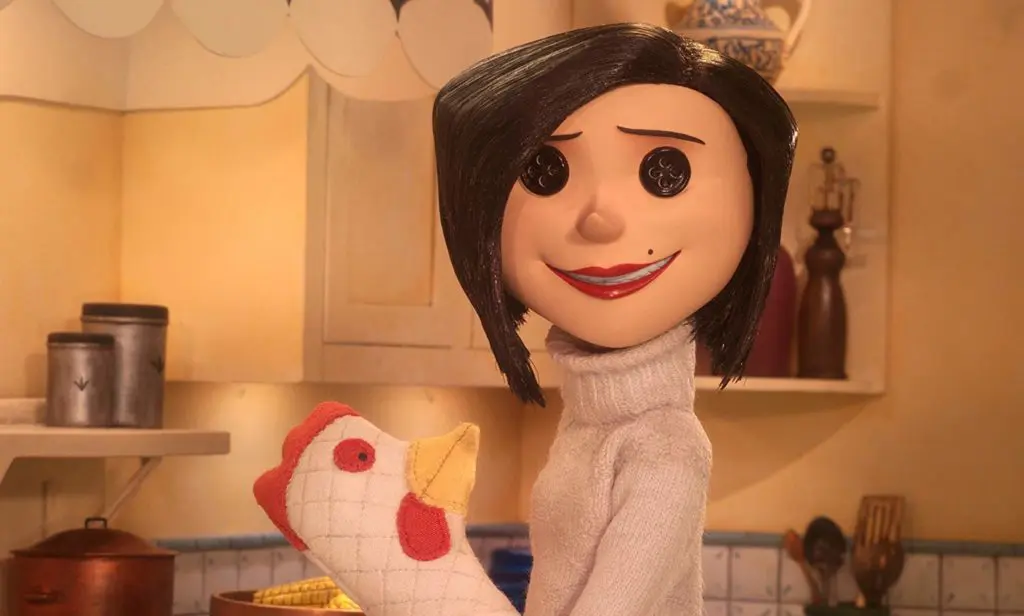
Written and directed by Henry Selick, based on the book by Neil Gaiman (USA, 2009)
You know, you could stay forever, if you want to. There’s one tiny thing we have to do first…
Coraline moves to a new home with her too-busy-to-notice-her parents and finds her way into a different version of the house, with different versions of her parents, who have buttons for eyes. The Other Mother (Teri Hatcher) rules this Looking Glass-type world, and tempts Coraline to stay with fabulous food and lots of attention. But she’s almost like a fairy-tale witch, having a dark persona which gradually emerges.
Coraline’s Other Mother is bloody creepy. Once you watch the film (or indeed read the book), you will not forget her. And Coraline never again takes her real parents for granted.
I’ve had a share of ups and downs over the last couple of decades, but nothing like what these ladies have been through in defense of their kids…
Terminator 2: Judgment Day
Written by James Cameron and William Wisher, and directed by James Cameron (USA, 1991)
You don’t know what it’s like to really create something; to create a life; to feel it growing inside you. All you know how to create is death and destruction…
When we first saw Linda Hamilton as Sarah Connor in the first Terminator sequel, she was hugely admired, grown up from the trembling teenager into a tough, single-minded survivor, determined to do whatever it took to protect her son. John Connor had to be kept alive, after all, in order to defend the human race in the future.
But Sarah’s strengths were born out of paranoia and nightmares, from the time she spent running from that first Terminator with Kyle Reese. She is fortunate that her son is understanding of her mental ill-health, though, and understands that she always has him in mind. Yes, parents will do virtually anything for their kids; but it’s rare that this is in the face of being hunted (by a seemingly infallible robot!) not to mention universal disbelief.
Us
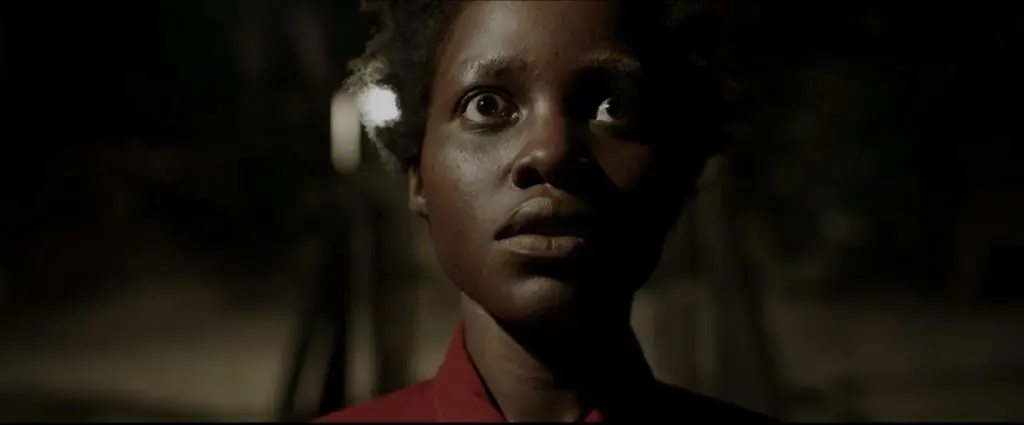
Written and directed by Jordan Peele (USA/Japan, 2019)
But the shadow, she gave birth to a little monster. Umbrae was born laughing. The girl had a second child, a boy this time. They had to cut her open and take him from her belly. The shadow had to do it all herself. She named him Pluto, he was born to love fire.
I have to bring this right up to date for a moment, having seen Lupita Nyong’o’s performance as both Adelaide Wilson and Red just this week. Although – like the Other Mother in Coraline – this is a dual role, I’m not going to find it easy to pick just one.
The breadth of Nyong’o’s performance is outstanding. She carries this film almost from the beginning, right to the last moment, with energy, passion and nuanced expression that covers fragility and fierceness alike; and that’s in both roles. Especially when you consider the roles she has played in other films (such as Star Wars: Episode VIII – The Last Jedi and Queen of Katwe), there is no denying this actor’s versatility.
As for the mother characters themselves… both parts are remarkable. They have both grown out of a traumatic childhood experience, but with different outcomes. Both are leaders for her family (more so under pressure than in “everyday” circumstances). Adelaide rises to the crisis of the film in unexpected ways; Red has risen above the life she’s had so far with unpredictable results. Whether you view her as a surreal horror “monster” or a metaphor (for ignored underclasses, suppressed darker self, whatever), it is clear that she would not let anything get in her way of coping with the lot she’s been dealt. I’m not going to forget either of them.
Under the Shadow
Written and directed by Babak Anvari (UK/Jordan/Qatar/Iran, 2016)
I’m sorry to say this is the only film on my list which isn’t in English; it’s in Persian. Set during the Iran-Iraq War, Under the Shadow is a deeply political drama as well as a supernatural horror. Narges Rashidi plays Shideh, left behind to mind her daughter while her husband is away on a government job. Shideh is stuck, feeling unable to be herself: she wants to study to be a doctor, but is refused, because of political activism in the past; she wants to be a modern woman but is obliged to wear a veil in public (and keep her keep-fit videos secret). She and her husband do not see eye-to-eye, but he leaves, giving her some sense of freedom… until the bombs start to fall close by, and the Djinn starts to visit.
Shideh is a memorable mother because I never would have expected to find a feminist in such a setting. She is not a flawless character (all the more believable as a result), being somewhat indecisive at times, and not as strong-willed as she likes to think she is; but she has to navigate some awful doublethink and conflicting realities, and sharp thinking prevails when it’s needed.
Three Billboards Outside Ebbing, Missouri
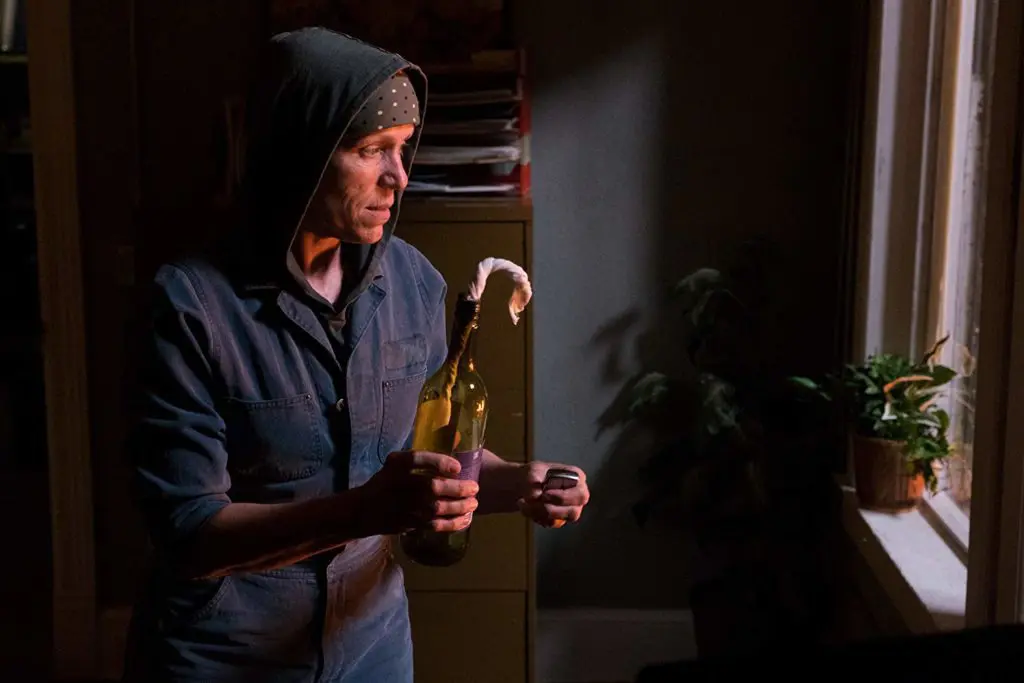
Written and directed by Martin McDonagh (UK/USA, 2017)
If it was me, I’d start up a database, every male baby was born, stick ’em on it, and as soon as he done something wrong, cross-reference it, make 100% certain it was a correct match, then kill him.
Mildred is the mother of a young woman who was raped and killed and is frustrated and furious that the police investigation has dried up. She is memorable because she is earthy, committed, passionate and damn it because she’s Frances McDormand.
Closure from any trauma (and I have no doubt a loved one’s murder qualifies) can take a long time. It must be heart-breaking to be the last person dealing with it. I watched Mildred campaign to get the police attention on the case again and finding allies in the process, but that doesn’t mean I can imagine being in her shoes. If ever I am though, she will surely be a role model.
Room
Written by Emma Donoghue (based on her own novel) and directed by Lenny Abrahamson (Ireland/Canada/UK/USA, 2015)
There are so many things out here. And sometimes it’s scary. But that’s ok. Because it’s still just you and me…
Brie Larson as Ma. If you’ve seen Room, nothing else needs to be added: Ma is unforgettable and Larson is riveting.
But for those who haven’t… Room is about the relationship between a young woman and her five-year-old son. The boy has never been outside of the room where they live, because the woman was kidnapped and held in that place some years ago, and he is the product of rape by her captor. Despite that bleak description, this is a film of warmth and hope: Ma is focused on raising her son with positivity and explaining the world to him in a way which is relevant; which of course changes when they are found.
Please do watch it: the writing is beautiful, the acting is outstanding, and the story will give you a new appreciation for your life.
The Florida Project
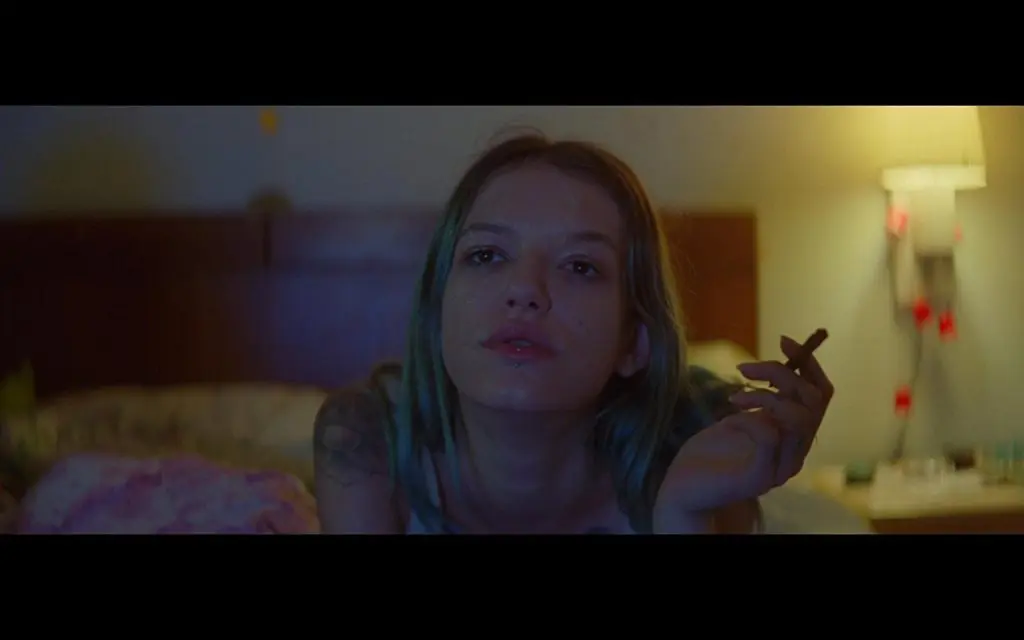
Written by Sean Baker, Chris Bergoch, and directed by Sean Baker (USA, 2017)
You just let her get away? And I’m the one who’s unfit? FUCK YOU!
Halley (Bria Vinaite), the mother figure in The Florida Project, is memorable because of just how unusual it is to see someone raising her child in poverty on the big screen. There is a strong air of realism about the film, so although it is fictional, there is little in the way of taking sides: the small family and the people around them are presented simply as they are.
I remember the film for its sunshine and for the mischievous children and for Willem Dafoe. I remember Halley for her daring to be herself against the odds of her circumstances while encouraging her daughter also to be herself.
The next couple are (quite contrasting) expectant mothers. Of course, a natural time to consider the impact of motherhood is when it is on its way…
Prevenge
Written and directed by Alice Lowe (UK, 2016)
Kids these days are really spoilt. It’s like, “mummy, I want a PlayStation! Mummy, I want you to kill that man!”
Ruth (Alice Lowe) kills a number of people during the course of Prevenge and feels as though she is being directed by the will of her unborn child. Only towards the end of the film do we find out why she is taking this course. As well as a serial killer black comedy-drama, Prevenge is also a study of the prenatal bond, and what it is like to bring a baby into the world on one’s own.
Ruth isn’t just memorable: she is unique. On the surface, her character may seem similar to the one Lowe played in Sightseers, but in Prevenge, she is in virtually every scene and fills every line with gallows wit. She also portrays the heaviness and contemplation of pregnancy like an absolute boss; it’s no surprise: Lowe wrote and made the film during her own late pregnancy.
Interestingly, this is one of only two films in this list directed by a woman (though the next one was written by a woman). Maybe women are too close to the topic of motherhood to feature it much, and it is simply a fact of life for many. Or maybe male writers and directors can observe it from outside. Who knows; maybe I’ll find more next year.
Juno
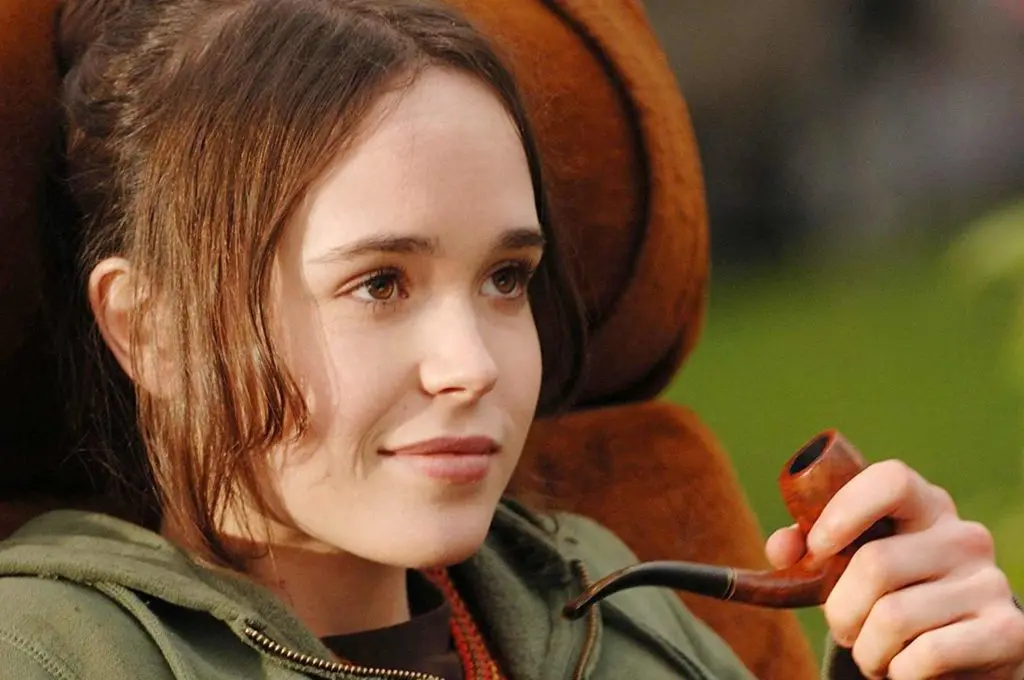
Written by Diablo Cody and directed by Jason Reitman (USA, 2007)
I’m already pregnant, so what other kind of shenanigans could I get into?
Juno MacGuff (Ellen Page) is a teenager faced with an unplanned pregnancy, who fills this film with discussions and meditations about the best choice for her and her baby: abortion, adoption, raising it herself. I mean come on: teenage angst and school are enough without having to deal with pregnancy hormones as well! She does a stunning job to avoid completely losing her marbles.
There is a lot of talking in Juno: it is essentially a teen debate with added drama. But we do have a young Ellen Page (just a little older than she was in Hard Candy), playing the titular character with sincerity and energy, and applying a very different perspective to motherhood than in any of the other films I’ve looked at here.
Let me close with a few titles which touched a personal nerve…
mother!
Written and directed by Darren Aronofsky (USA, 2017)
What hurts me the most is that I wasn’t enough.
I’m not going to say much about this film, or indeed the eponymous Mother (Jennifer Lawrence): simply put, I hated the film. It was beautifully made and all the performances were great; but as a mother myself, the story was an absolute nightmare, which got in the way of any appreciation I could have had. It was also not the home invasion thriller that the IMDB blurb had led me to expect, but religious allegory: one occasion when going into a film “blind” did not work for me.
I can still hear that baby’s neck crack.
Hounds of Love
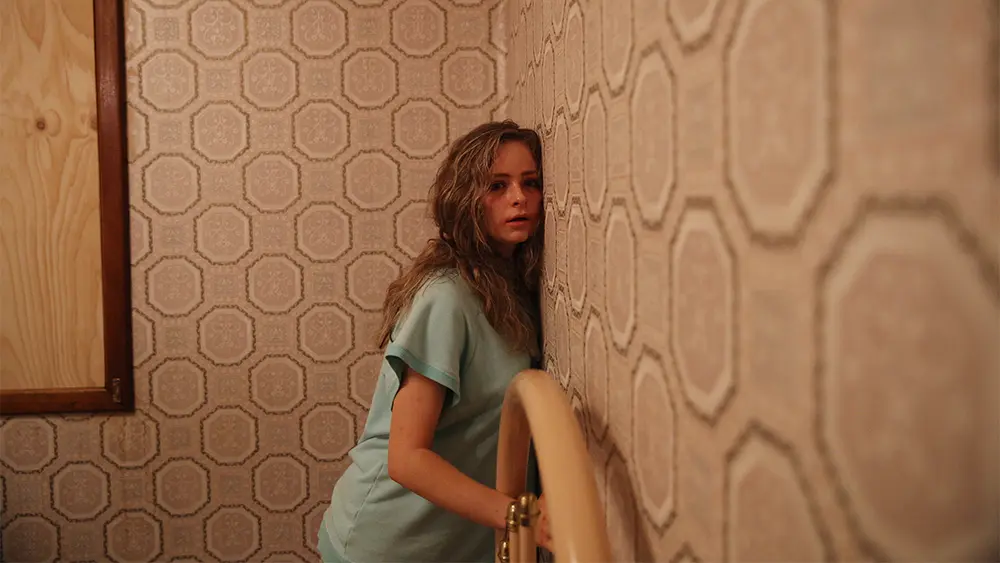
Written and directed by Ben Young (Australia, 2016)
Like Room, this is another film about a young woman who is held captive; this time by a couple. All the characters are powerfully written and the victim’s mother Maggie (Susie Porter) is a very small role, but she is the one I identified with the most. Indeed, the image of her running towards her daughter in the closing scene is what I think of when I remember Hounds of Love (I don’t know why it’s called that, by the way), ever since seeing it at the Triple Six Film Festival two years ago.
Maggie is one hundred percent committed to finding her daughter when she is struggling to get other people to believe Vicki could be in any trouble. She applies both intelligence and intuition to her hunt, with a single-minded determination, which I found personally very moving.
Oh, and the film is beautifully shot too. I can recommend it for many reasons.
Angie
Written by Todd Graff, based on the novel by Avra Wing, and directed by Martha Coolidge (USA, 1994)
Here’s a film which not many people seem to have heard of, in which Geena Davis plays the title role of Angie Scacciapensieri. It is about a young woman who takes an unexpected pregnancy as a catalyst for working out who she is and wants to be, and which social groups she feels at home in; essentially an identity crisis that ebbs and flows throughout the story.
The quality of the plot is somewhat patchy, but the reason why this mother was memorable to me is that it was a film exploring pregnancy and motherhood which I saw long before I became pregnant myself; the character stayed with me. It was the first time I had seen on screen any kind of anxiety or confusion about being a mother, and I had complete sympathy with Angie herself
Arrival
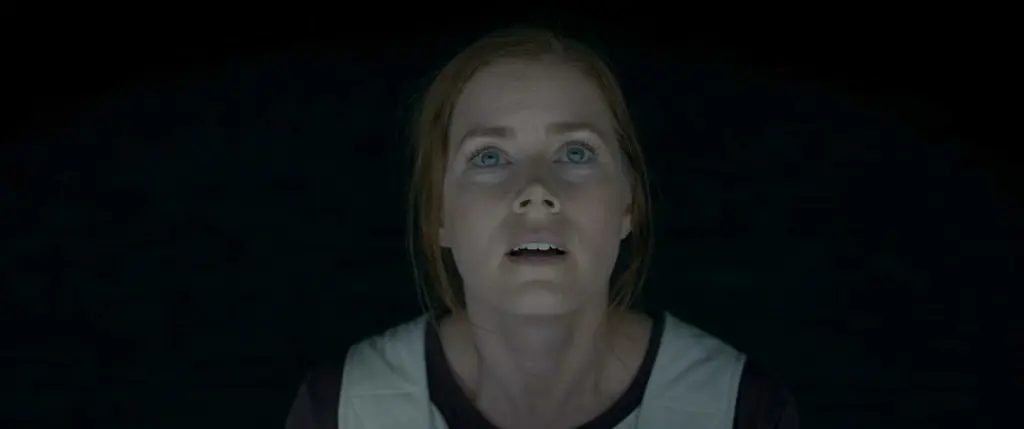
Written by Eric Heisserer, based on the story (“Story of Your Life”) by Ted Chiang, and directed by Denis Villeneuve (USA, 2016)
To close with the main character from one of my favourite films: Louise Banks (Amy Adams), the linguist and parent. I love her clarity of thinking, her poise, her creativity and openmindedness.
The resolution of Arrival is not something which can easily be described, and I would recommend that anyone should watch the film or read the short story (ideally both). Once it all comes together though, the viewer gets to realise that learning the alien visitors’ language has enabled Banks to learn their way of viewing time, too. Consequently, when she considers the story of her daughter’s life, she no longer had to see it in a linear sequence; a story which would get steadily sadder with her daughter’s illness. This new way of thinking (or was it there all along?) enables her to view her daughter’s life as a whole, which adds an element of serene stoicism to their bond.
Happy Mother’s Day

